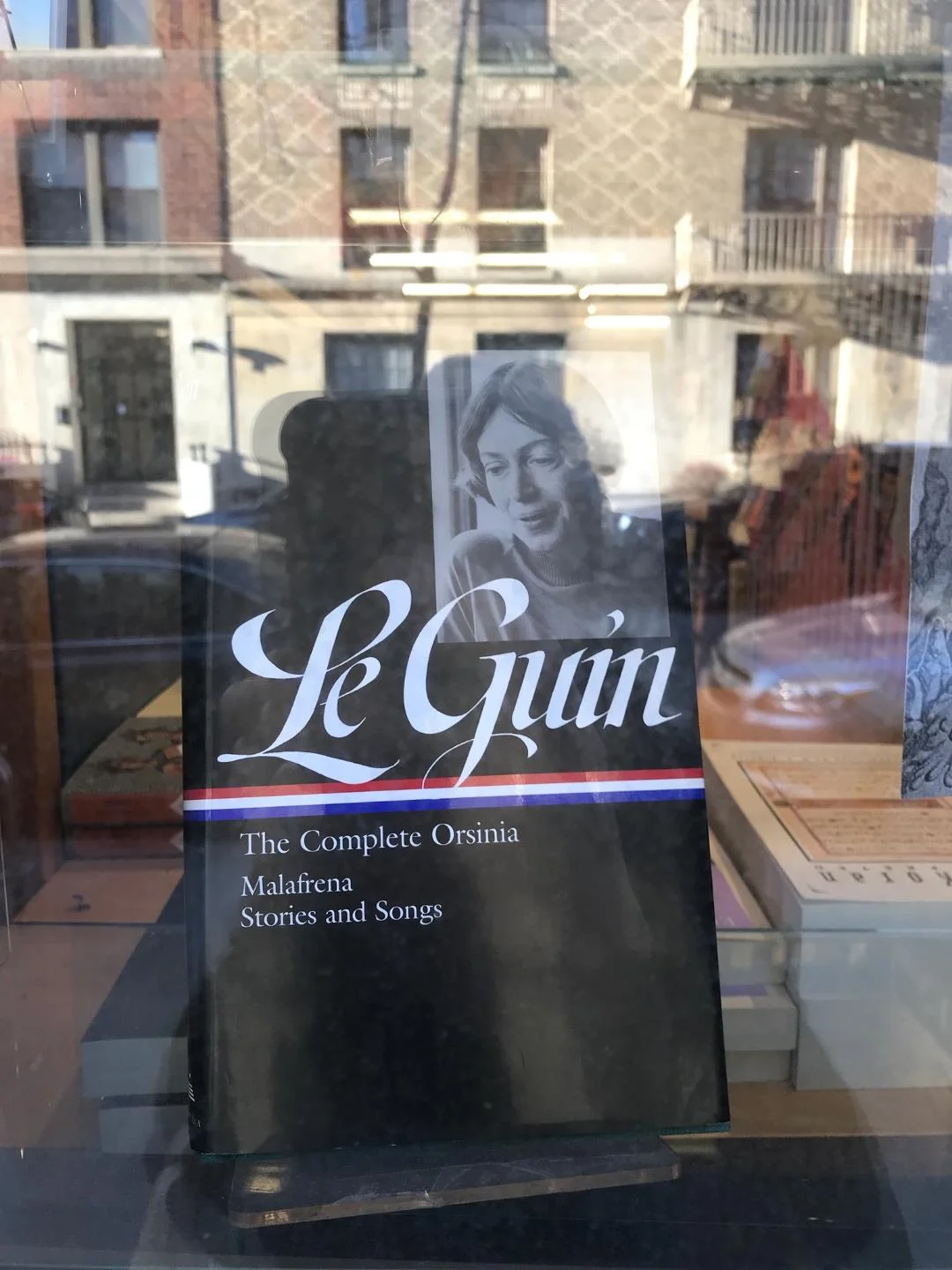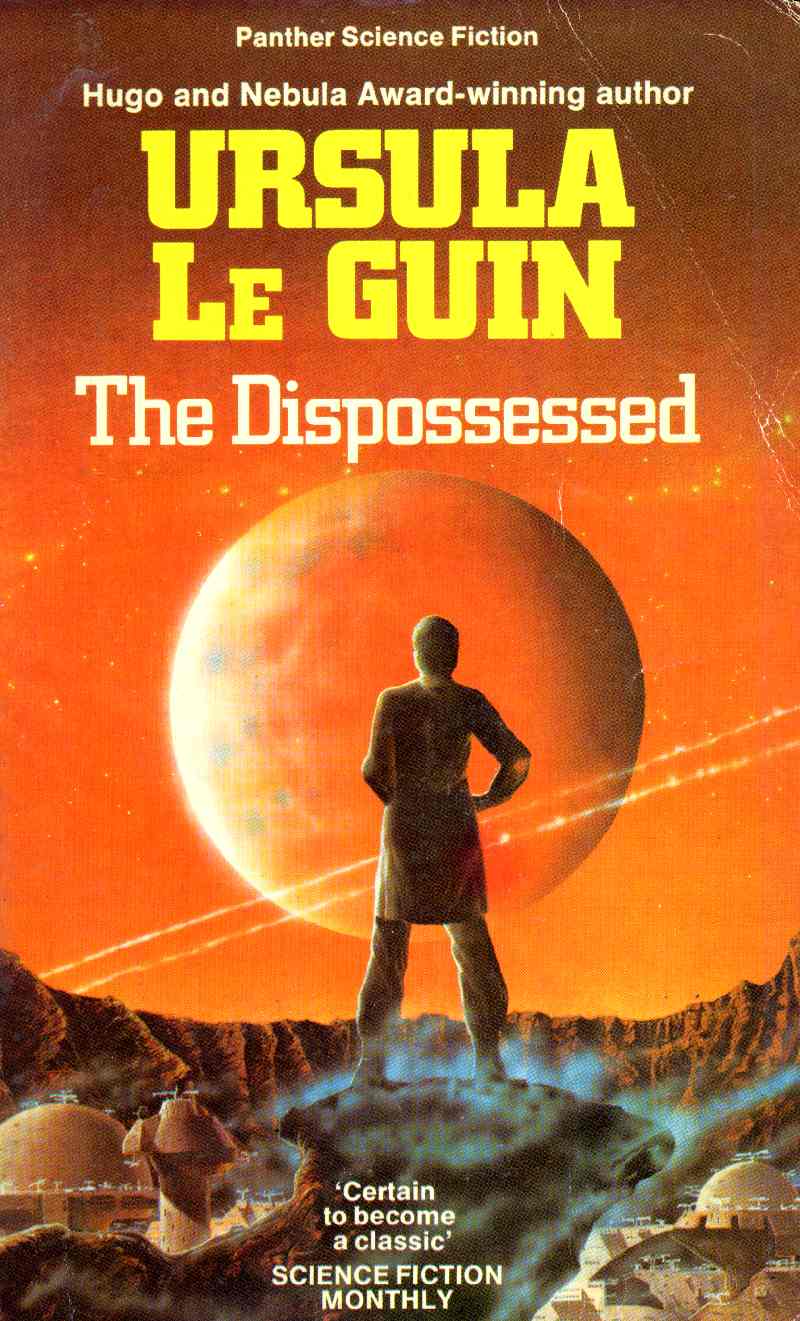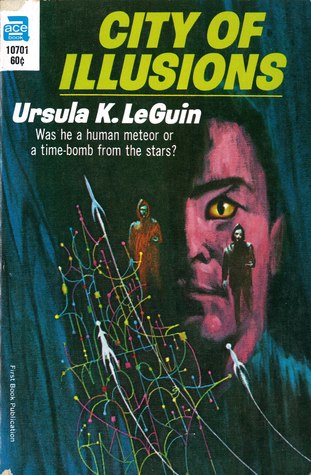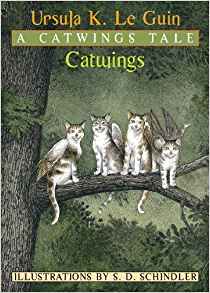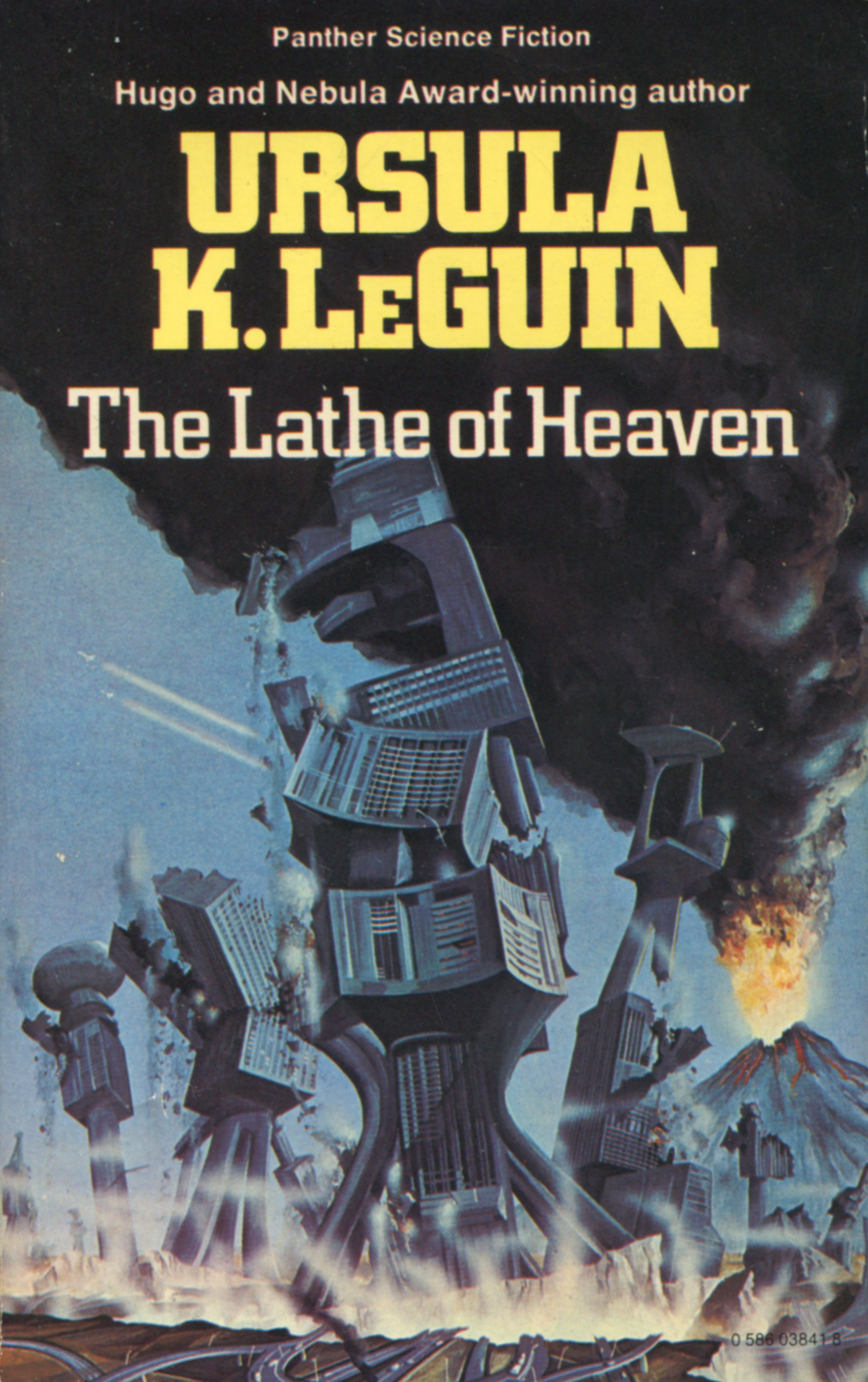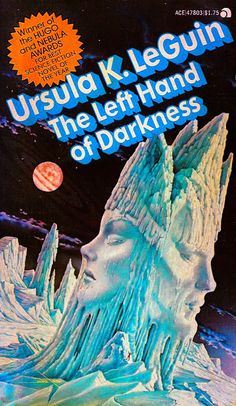Ursula K. Le Guin on the cover of an anthology of some her works published by The Library of America. Photo: Esendom
By ESENDOM
January 26, 2018
Ursula K. Le Guin (1929-2018), a product of 20th century Cold-War era social upheavals and transformations including the civil rights movement and the sexual revolution of the 1960s, passed away on Jan. 22. She wore many hats: That of a female science fiction writer in a literary world and scene dominated by men at the time; feminist and poet; children's book author, translator among other things. Le Guin was a pioneering writer who pushed the science-fiction genre into new realms of the imagination, capturing glimpses of utopia and a different and just world free of oppression and exploitation. Two of her most popular and imaginative books, The Dispossessed (1974) and The Left Hand of Darkness (1969) continue to be widely read by a newer generation of sci-fi readers. Le Guin also wrote the beautiful, captivating Catwings children’s book series (1988-1999) featuring illustrations by S.D. Schindler. Le Guin was supportive and kind to younger writers whom she gifted with her insights and words. On the day she passed, Junot Díaz bid her goodbye on his Facebook page: "Rest in Peace, Ursula, I'll never forget our conversations or the gifts of your books." She will not be forgotten. Here is Ursula K. Le Guin on her own words:
On art and rebellion:
We will need writers who can remember freedom: poets, visionaries—the realists of a larger reality. Right now, I think we need writers who know the difference between production of a market commodity and the practice of an art.
On the commercialization of books:
Right now, I think we need writers who know the difference between the production of a market commodity and the practice of an art. Developing written material to suit sales strategies in order to maximize corporate profit and advertising revenue is not quite the same thing as responsible book publishing or authorship.
On Sexism:
In our society, women have lived, and have been despised for living, the whole side of life that includes and takes responsibility for helplessness, weakness, and illness, for the irrational and the irreparable, for all that is obscure, passive, uncontrolled, animal, unclean - the valley of the shadow, the deep, the depths of life.
On language and patriarchy:
Public speaking is done in the public tongue, the national or tribal language; and the language of our tribe is the men’s language. Of course women learn it. We’re not dumb. If you can tell Margaret Thatcher from Ronald Reagan, or Indira Gandhi from General Somoza, by anything they say, tell me how. This is a man’s world, so it talks a man’s language. The words are all words of power.
On racism:
I categorically judge as wrong any person who considers himself or herself racially or socially superior to another or enforces inferior status on another.
On Utopia:
To me the important thing is not to offer any specific hope of betterment but, by offering an imagined but persuasive alternative reality, to dislodge my mind, and so the reader’s mind, from the lazy, timorous habit of thinking that the way we live now is the only way people can live. It is that inertia that allows the institutions of injustice to continue unquestioned.
And finally...on crows:
Crows are the color of anarchy
and close up they’re a little scary.
An eye as bright as anything.
Having a pet crow would be
like having Voltaire on a string.
[From the poem Crows by Ursula K. Le Guin via ursulakleguin.com ]

